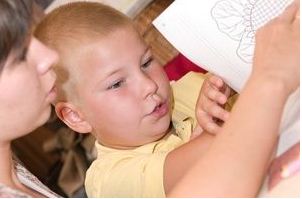Brains Scans Show That Just One Week of Therapy May Help Reorganize Brain, Reduce Stuttering

[Source Science Daily.com]
Just one week of speech therapy may reorganize the brain, helping to reduce stuttering, according to a study published in the August 8, 2012, online issue of Neurology®, the medical journal of the American Academy of Neurology.
The Chinese study gives researchers new insights into the role of different brain regions in stuttering, which affects about one percent of adults.
The study involved 28 people with stuttering and 13 people who did not stutter. Fifteen of the people with stuttering received a week of therapy with three sessions per day. The other stutterers and the controls received no therapy. Therapy involved the participants repeating two-syllable words that were spoken to them and then reading words presented to them visually. There was no time limit in either task. The average scores on stuttering tests and percent of stuttered syllables improved for those who received the therapy. There was no change in scores for the stutterers who did not receive therapy.
Brain scans were used to measure the thickness of the cerebral cortex in the brain for all participants at the beginning and end of the study. They also measured the interactions between areas of the brain while at rest, called resting state functional connectivity. Thickness and strength of interactions was reduced in an area of the brain important in speech and language production called the pars opercularis for those with stuttering compared to the controls. Increased strength of interactions was found in the cerebellum for those with stuttering compared to the controls.
Read the Rest of this Article on Science Dailly
PediaStaff is Hiring!
All JobsPediaStaff hires pediatric and school-based professionals nationwide for contract assignments of 2 to 12 months. We also help clinics, hospitals, schools, and home health agencies to find and hire these professionals directly. We work with Speech-Language Pathologists, Occupational and Physical Therapists, School Psychologists, and others in pediatric therapy and education.
